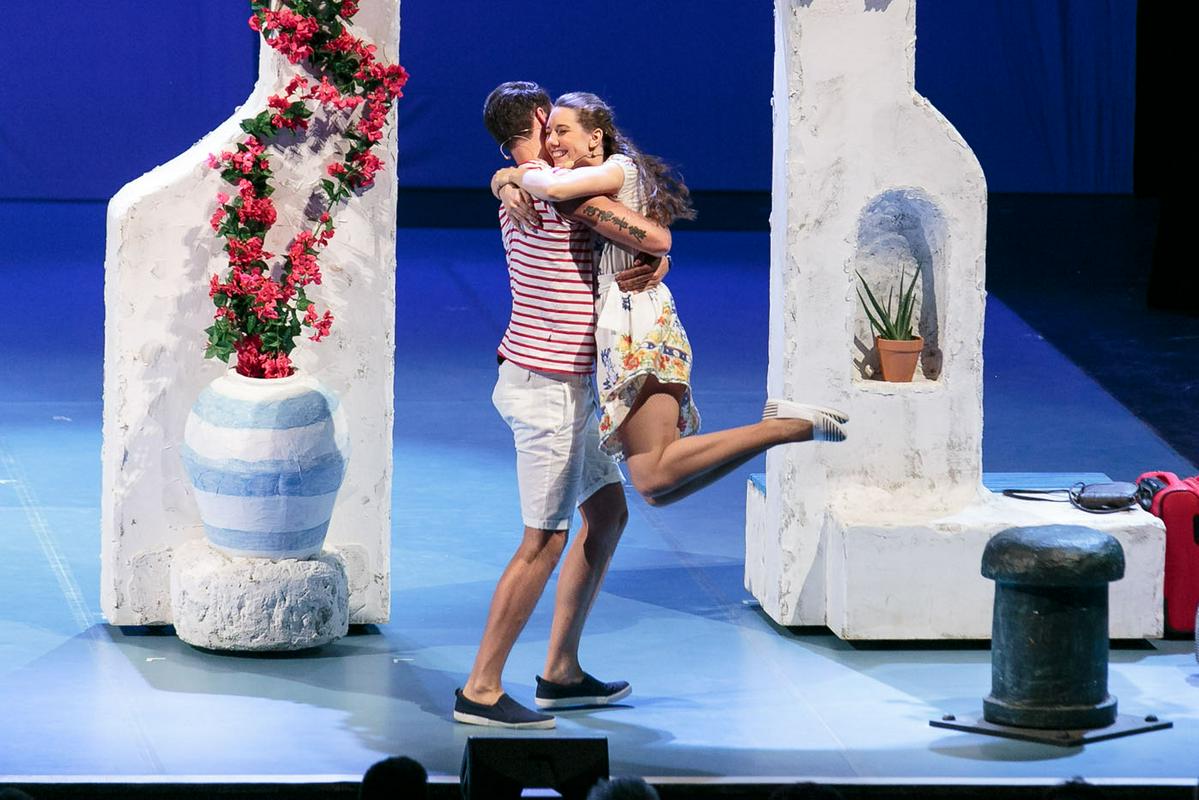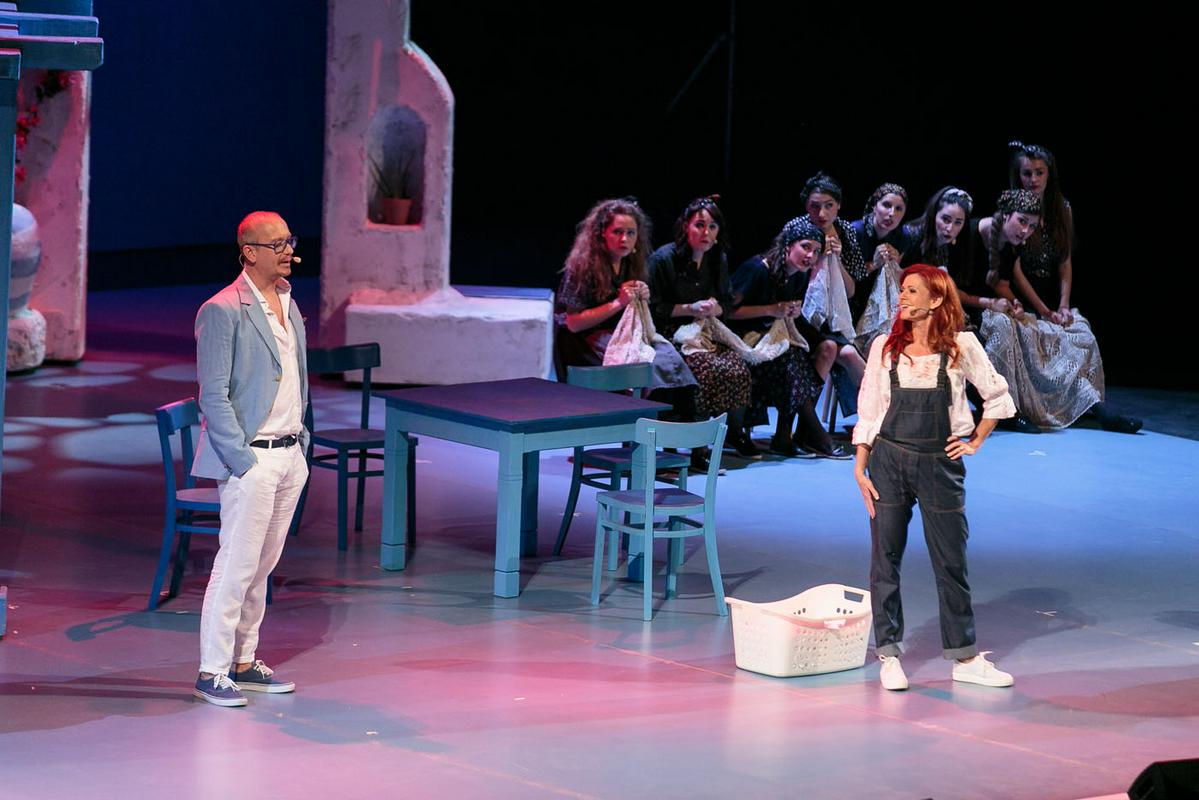

Mama Mia! is being performed all over the world in more than 20 languages, including the Slovenian language. This fact can be attributed to the perseverance of one person – the producer Jure Franko, who persisted for six years and finally managed to obtain the licence for staging the musical in our country.
"All good things are worth making an effort for. The first time Simona and I went to London to see it, we agreed that it was a musical we would absolutely like to stage. I immediately tried to obtain the rights for staging it, but for two years there was no response," Franko admitted. A year after the premiere the situation is completely different.
The first of the two sold out performances scheduled for June 17 and 18 in the centre of Ljubljana will be attended also by the representatives of the authors of the original performance. "Now everybody wonders what’s going on in Slovenia; crowds of spectators are coming to watch Mama Mia!," Franko acknowledged with a smile.
After the success of the musical Flowers in Autumn and Mama Mia! Slovenia came even closer to the trends all over the world, where musicals are an already established genre for attracting masses. "Slovenians are no different from the rest of the world. The response to Mama Mia came as a surprise from the very beginning, from the original premiere on. And it seems that we are following the trend, and nobody can explain why it is so successful," Franko admitted, and continued: "It is a winning combination of the familiar music and a story. It is a musical with which mothers, fathers, and daughters can identify, and a combination of things which resulted in something magical."
Yet the task the creators of the Slovenian version of the musical were facing was far from simple. They had to adapt the musical to Slovenian space in a manner comprehensible to the Slovenians. "The biggest enigma for me was the reaction of the audience to songs they are used to hear sung in English. As we have no rights to broadcast the songs, or to issue a CD – the authors refused their permission – we were not sure whether the audience would accept the songs heard for the first time. I was also sceptical of translations of songs into Slovenian; not many are well done. But without any doubt Tomaž Domicelj made a masterpiece," Franko emphasized.
All over the world the purpose of musicals is to bring relaxation, but the Slovenian audience is according to Franko still a bit reserved. "In America and England in the end everybody is standing, dancing and singing – because they come to have fun. We are still a bit embarrassed, but I think that Mama Mia! is helping our people to learn how to let their hair down. We could tell some quite interesting stories from our performances; when spectators in front rows get up and those sitting behind start pushing them down to their chairs, complaining of obstructed view to the stage… while some people would like to get up and dance. But the trend is growing, and it is nice to see you don’t need to go to London any more to be able to get up and party at the end of the show!" Franko concluded his explanation.

































































